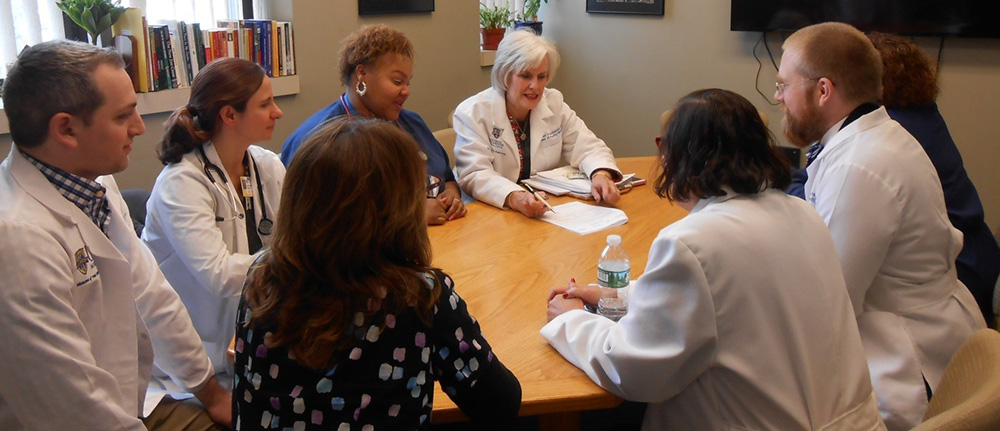Integrated Care Family Track
The Integrated Care-Family Postdoc was invaluable for my development as a psychologist: Our faculty eagerly helped me expand my skills through coursework, live supervision, community partnerships, and interprofessional teaching. With their guidance, I became a more effective clinician; a more collaborative colleague; and a strong advocate for patients, their families, and their teams. Thanks to my training at URMC, I'm uniquely positioned as a systems-oriented pediatric and family psychologist, a medical educator, and a leader in pediatric integrated care.
- Rebecca Copek, Ph.D.
Integrated Care Family Track Overview
The Integrated Care Family Psychology Fellowship track prepares psychologists for clinical and academic roles in primary care medical settings through education in family psychology and systems theory, collaboration, and health psychology. Fellows provide assessment, consultation, and treatment to patients and families in a variety of health-related settings. Fellows are also provided with opportunities to teach medical students, psychology interns, and medical residents and fellows in multiple medical settings. Fellows are encouraged to participate in scholarly activities related to providing biopsychosocial systems-oriented care in a medical setting. Working in close proximity with providers from a wide range of disciplines also provides the fellow with opportunities for professional differentiation and professional identity development. All fellows participate in individual and group supervision weekly; at least two individual hours are provided by a licensed clinical psychologist.
Integrated Care Family fellows have two options for coursework (details here). These are tuition-supported and result in out-of-pocket expenses (details here).
Training Goals
Our program is a one-year APA accredited program (as of 2023 cohort). Some trainees may wish to have additional training and with faculty agreement, remain for a second year.
ICF fellows focus on:
- Learning systems theory, systemic approaches, and family therapy skills that facilitate participating in a biopsychosocial approach to health and healthcare
- Developing collaborative skills in working with other health care professionals
- Identifying a specialty area of interest within clinical health psychology
- Engaging in scholarship (see our Scholarly Activities page)
- Learning communication coaching skills for use in teaching medical students and residents (see more here)
Those interested in a second year of training seek advanced learning regarding systemic approaches, including application to family therapy, interdisciplinary collaboration and medical education, and leadership development.
Contact Us
If you have further questions, please feel free to contact us for more information:
Email: Yasmin Coley
Phone: 585-274-0243
Psychology Training Program Coordinator
Mailing Address:
University of Rochester Medical Center
300 Crittenden Boulevard, Box Psych
Rochester, NY 14642
Psychology Training Program Director: Jennifer West, Ph.D.
Fellowship Integrated Care Family Track Director:
Susan McDaniel, PhD
Fellowship Integrated Care Family Track Associate Director:
Lindsay Sycz, Psy.D.
Psychology Training Administrator: Linda Brown
